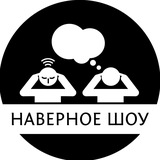Наверное надо вспомнить рубрику "навершутки" и отметить, что идею для нового романа можно найти в любом месте и в любой момент
А в нашем Вашингтонском эпизоде мы обсуждаем американскую версию газеты "Не дай Бог!" от Боба Вудворда, которому не надо искать идей для книг пока существуют президенты США
@navernoeshow
А в нашем Вашингтонском эпизоде мы обсуждаем американскую версию газеты "Не дай Бог!" от Боба Вудворда, которому не надо искать идей для книг пока существуют президенты США
@navernoeshow
group-telegram.com/navernoeshow/220
Create:
Last Update:
Last Update:
Наверное надо вспомнить рубрику "навершутки" и отметить, что идею для нового романа можно найти в любом месте и в любой момент
А в нашем Вашингтонском эпизоде мы обсуждаем американскую версию газеты "Не дай Бог!" от Боба Вудворда, которому не надо искать идей для книг пока существуют президенты США
@navernoeshow
А в нашем Вашингтонском эпизоде мы обсуждаем американскую версию газеты "Не дай Бог!" от Боба Вудворда, которому не надо искать идей для книг пока существуют президенты США
@navernoeshow
BY Наверное шоу
Share with your friend now:
group-telegram.com/navernoeshow/220
